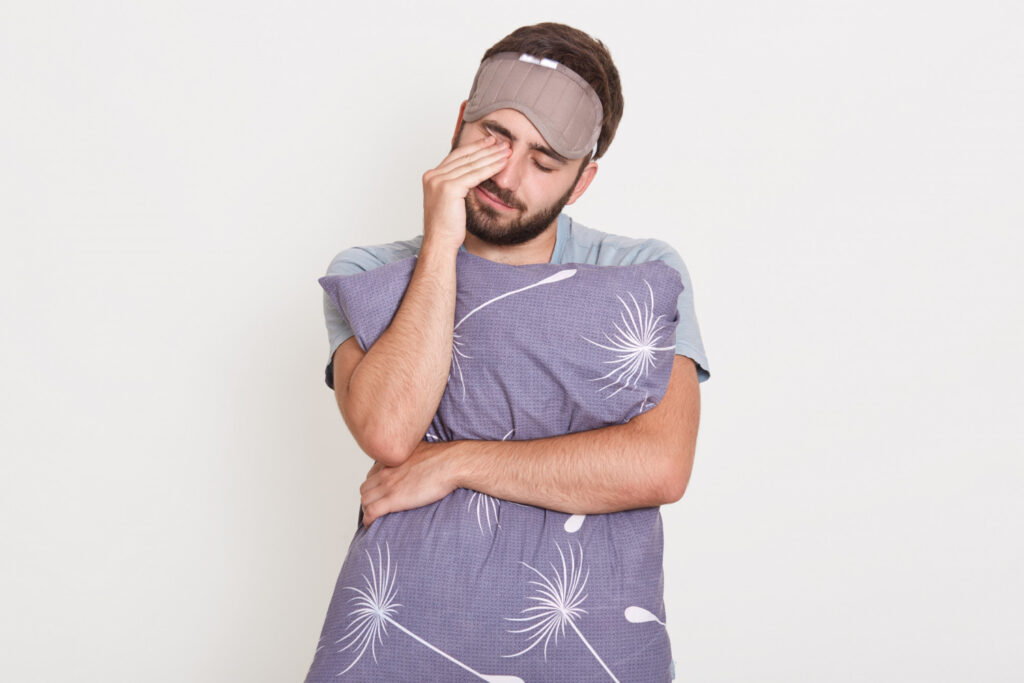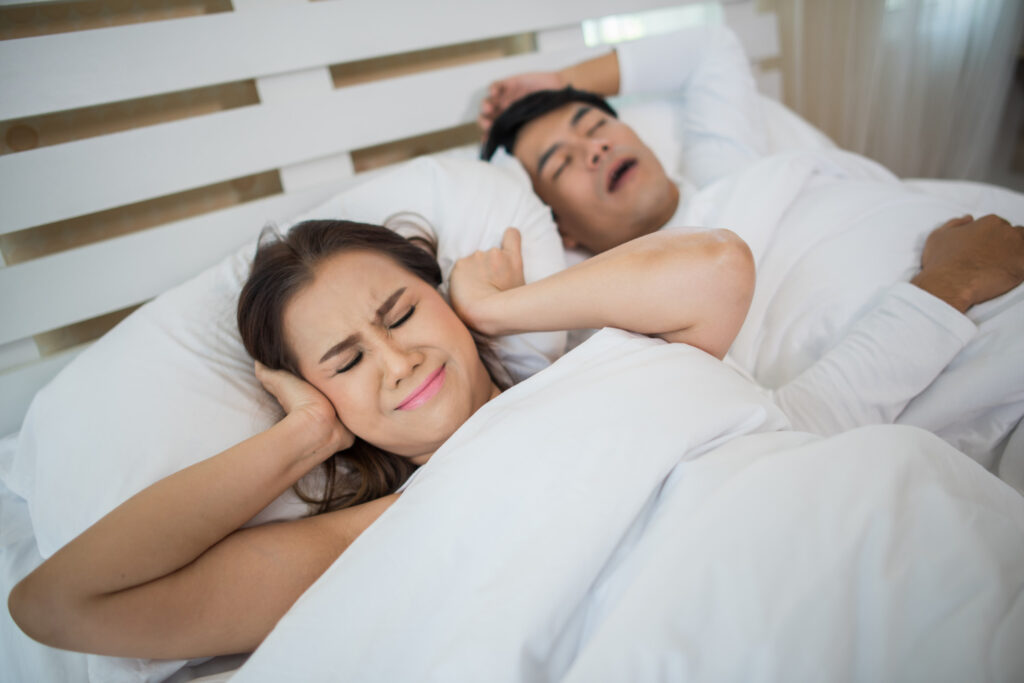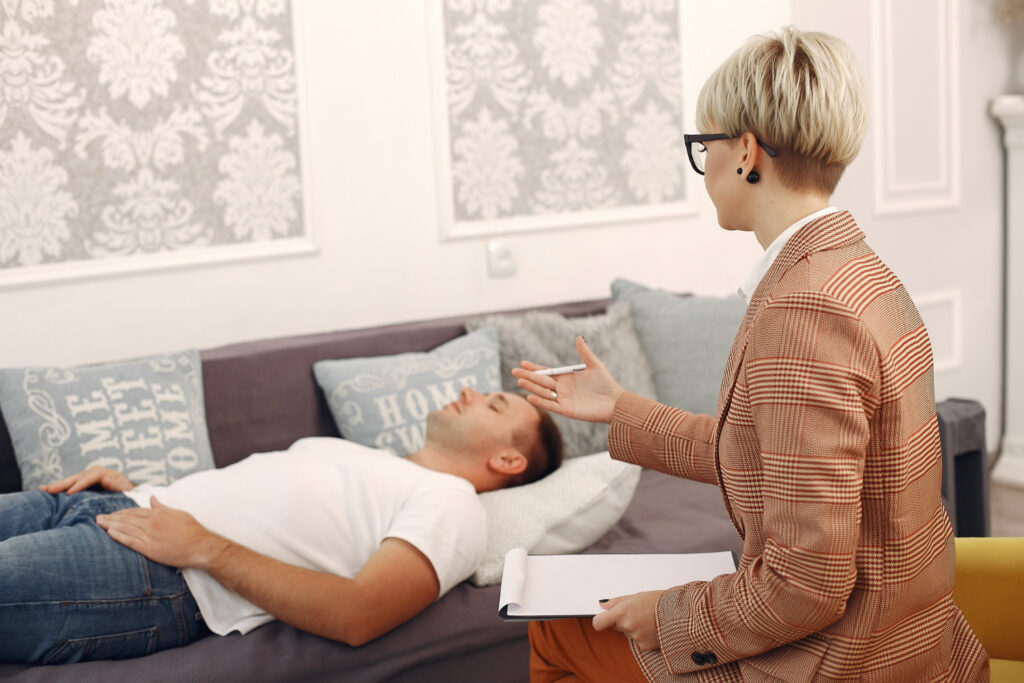If you’ve followed me for a while, you know how deeply I value sleep. I’ve always said—sleep is not a luxury; it’s a necessity for healing, energy, and balance. That’s why in 2024 we created our movement Sleep Deeper India—to help people rediscover quality rest.
But over the years, I’ve come across so many people who say:
“Luke, I sleep 8–9 hours, but I still wake up feeling tired, foggy, and low on energy.”

If that’s you, I want you to know this:
It’s not always about the number of hours you sleep—it’s about how well you sleep.
And sometimes, the issue isn’t visible. It’s happening inside your body—like how you’re breathing at night.
One of the most underrated yet serious root causes of poor sleep quality…
…is sleep apnea, which often goes undiagnosed. This isn’t just about snoring—it affects your oxygen levels, heart health, metabolism, mood, and brain clarity. That’s the real sleep effect on health we need to talk more about.
In one of my insightful podcast episodes, I sat down with Dr. Vikas Aggarwal, a renowned ear, nose, and throat (ENT) surgeon, widely known as the ‘Father of Sleep Surgery in India’ to explore a tool that can change lives when used the right way—Sleep Studies.
Now you might be wondering:
- “Isn’t this only for people who snore?”
- “Can’t I just track my sleep on my smartwatch?”
- “Do I really need to go to a lab and sleep with wires on me?”
You’re not alone in thinking that. But here’s the truth:
Sleep studies are not just real—they’re often the only way to uncover silent issues that sabotage your health.
So, if you’re someone who wakes up feeling drained even after a full night’s rest, let’s dive in and simplify this powerful, often misunderstood tool—because your sleep holds the key to your energy, immunity, focus, and overall well-being.
Why Sleep Matters More Than You Think?
The world talks so much about nutrition, exercise, and supplements—but what about sleep?
Sleep is not just about feeling fresh the next day. It’s your body’s natural repair mechanism. And when sleep suffers, everything suffers—your energy, immunity, metabolism, focus, and even your emotional health.
Here’s what chronic poor sleep can silently do to you:
- Weaken your immune system
- Elevate stress hormones like cortisol
- Trigger weight gain and sugar cravings
- Worsen inflammation in the body
- Mess with your mood, memory, and clarity
This is the real sleep effect on health—and it’s more powerful than most people realize.
The truth is that you don’t have to be a ‘bad sleeper’ to have a sleep issue.
Many people who think they sleep ‘okay’ are actually stuck in light sleep cycles, never dipping into the deep, healing states their body needs.
Sleep Apnea: The Silent Thief of Health and Energy
One of the most underdiagnosed causes of poor-quality sleep today is sleep apnea—and most people don’t even know they have it.
Sleep apnea isn’t just snoring. It’s a condition where your breathing stops for a few seconds multiple times through the night. And every time that happens, your body jerks itself out of deep sleep to restart your breathing.
You may not even wake up fully—but your body pays the price.
Here’s how undiagnosed sleep apnea quietly chips away at your health:
- It strains your heart and cardiovascular system
- It worsens anxiety, depression, and mood swings
- It disrupts your metabolism and leads to weight gain
- It leaves you feeling drained, even after eight hours of sleep
If you snore loudly, wake up feeling tired, or your partner notices you stop breathing in your sleep, please don’t ignore it.

You may need a sleep study to get clarity—and potentially save your long-term health.
How Modern Lifestyle Habits Make It Worse
Now, sleep apnea isn’t always just about structural issues in your nose or throat. Our lifestyle choices often act as triggers.
Think about this:
- Late-night binge-watching on OTT platforms? That light exposure delays your natural melatonin production and throws off your sleep rhythm.
- Midnight snacking or heavy dinners? That leads to weight gain, which puts more pressure on your airway.
- Watching thrillers, violent shows, or action-packed content right before bed? That keeps your nervous system in ‘fight or flight’ mode instead of winding down.
Instead, we must go back to the basics—what we call sleep hygiene:
- Stick to a consistent sleep schedule
- Choose calming routines before bed (reading, light music, gentle breathwork)
- Limit screen time and keep your sleep environment dark and cool
Not All Sleep is Equal: Focus on Quality Over Quantity
You could sleep eight to nine hours and still feel groggy if your sleep cycles are constantly interrupted or shallow.
Why does this happen?
- Airway blockages like a deviated septum, tonsil enlargement, or nasal allergies
- Upper Airway Resistance Syndrome (UARS)—a milder but significant form of sleep apnea
- Frequent nighttime awakenings that prevent your body from reaching REM or deep non-REM sleep
That’s why so many people say:
“Luke, I sleep enough, but I still feel tired.”
And this is exactly where a sleep study can make all the difference. It tells you what’s really happening while you sleep—not just what your smartwatch shows.
What is a Sleep Study? Let’s Understand.
If you’ve ever woken up feeling exhausted even after eight hours of sleep or struggled with snoring, irritability, or foggy mornings—you may need more than just a new pillow or mattress.
You may need a sleep study.
Now, I know the term might sound technical or even intimidating, but trust me—it’s not. In fact, it’s one of the most powerful diagnostic tools we have today to uncover what’s really going wrong with your sleep.
I’ve always emphasized the sleep effect on health through our work, and now, with experts like Dr. Vikas Aggarwal, a renowned ENT surgeon and sleep expert, we’re diving deeper into solutions that actually work.
So, What Exactly is a Sleep Study?
A sleep study, or polysomnography, is a non-invasive test that monitors what’s happening in your body while you sleep—especially the things you can’t see or feel:
- Breathing patterns
- Oxygen levels
- Heart rate
- Brain waves
- Sleep stages and cycles
It helps detect conditions like sleep apnea, upper airway resistance syndrome (UARS), insomnia, and more—conditions that silently ruin the quality of your rest and create ripple effects across your physical and emotional health.
Types of Sleep Studies: You’ve Got Options
There are two common types of sleep studies:
Level 1: In-Lab Sleep Study
- Done in a sleep clinic or hospital
- Multiple sensors track your body’s activity in great detail
- Ideal for complex cases or serious concerns
- Yes, it may feel clinical, but it’s safe, accurate, and eye-opening
Level 3: Home-Based Sleep Study
- A simple, portable kit delivered to your home
- You wear a few basic sensors—usually on your finger, chest, or abdomen
- Sleep in your bed, in your comfort zone
- Affordable, accessible, and perfect for initial screening
Many services today even send trained technicians to your home to guide you through the process.
Whether in-lab or at home, both studies aim to capture how well you’re breathing, sleeping, and restoring overnight.

Who Should Consider a Sleep Study?
Let’s bust a myth:
You don’t have to be elderly or overweight to need a sleep study. Even fit young adults and children can suffer from hidden sleep disturbances.
You should consider getting evaluated if you experience:
- Loud snoring or waking up gasping for air
- Daytime fatigue despite sleeping 7–9 hours
- Morning headaches or dry mouth
- Trouble focusing, irritability, or low mood
- Your partner says you stop breathing at night
Even sugar cravings, weight gain, or migraines can be signs of poor oxygenation at night due to undiagnosed sleep apnea or UARS.
And please, don’t fall into the trap of saying:
“I’m just tired because I work hard.”
Sometimes, it’s not your workload—it’s your oxygen.
The sleep effect on health is too big to ignore. A sleep study gives you the data and clarity to take action—not just guesswork or self-diagnosis.
What Happens in a Sleep Study? Let’s Ease the Fear
Many people worry:
- “Will I really be able to sleep with wires on me?”
- “Is it painful?”
- “Isn’t this too much for just being tired?”
Let’s simplify what actually happens:
In-Lab Study (Level 1)
- You check into a sleep clinic at night
- Small, painless sensors are gently attached to your body
- You sleep normally while your vital functions are monitored
- A trained sleep technician and doctor review your sleep patterns and breathing events
Home Sleep Study (Level 3)
- A portable device is delivered or brought to your home
- You wear easy-to-use sensors—often on your finger or chest
- Sleep in your room, as usual
- The data is recorded and shared with a sleep expert for detailed analysis
No pain, no injections, no scary machines. Just a clear, science-backed window into your sleep.
Whether it confirms sleep apnea, rules out a serious condition, or shows areas for lifestyle improvements—a sleep study is your first step toward better rest and better health.
Are Sleep Studies Worth It? Let’s Weigh It Out.
I get it — deciding to do a sleep study can feel like a big step. So, let’s break it down clearly.

But here’s the real question I want you to ask yourself:
What’s the cost of NOT knowing why you feel tired, foggy, or drained every day?
The truth is, that ignoring these signs could cost you your health, your happiness, and your peace of mind.
If your symptoms are mild or occasional, there’s so much you can do through lifestyle and awareness before considering a clinical test. This is where holistic health truly shines. We have lots of videos and content to help you build better sleep habits naturally.
Start simple. Stay consistent. But never ignore what your body is trying to tell you.
The Last Word
A sleep study might feel overwhelming at first—but it’s simply a tool. A tool that gives you answers, clarity, and direction.
Awareness is the first step to transformation.
Whether it’s improving your sleep hygiene or understanding if something deeper is going on, take that step today.
You deserve deep rest. You deserve vibrant health. And if you’re unsure where to begin, our team is here to walk with you—every step of the way.
Disclaimer: This blog is for informational and educational purposes only. It is not a substitute for medical advice, diagnosis, or treatment. Always consult with a qualified healthcare professional before making any decisions related to your health, especially if you suspect a sleep disorder or ongoing fatigue.
If you’re struggling with sleep or chronic fatigue, don’t wait.
Set up a one-on-one consultation with our integrative team to guide you with personalized solutions tailored to optimize your sleep.
Reach out to us at 1800 102 0253 or write to us at consults@lukecoutinho.com.

Team Luke
Start Your Wellness Journey
Feeling inspired to take the next step in your wellness journey? Connect with us to explore how our tailored programs can support your health journey. Your transformation is just a conversation away.



